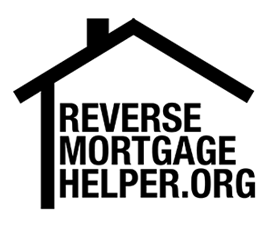Frequently Asked Questions
Reverse Mortgage Questions
How long does the reverse mortgage process take?
What is the interest rate on my loan going to be?
Will I be able to sell my home?
Can I make payments on the reverse mortgage loan or pay it off early?
Can I own a second or vacation home?
Can I rent out a room or a unit of my home?
Do I have to borrow the maximum amount that I qualify for, or can I take less?
Why is a Federally Insured Reverse Mortgage so expensive?
What is a servicing fee?
Is the interest that I pay on my federally insured Reverse Mortgage tax-deductible?
Counseling Related Questions
If you are a non-profit company, why do I have to pay?
Just like any other company, we do still have employees to pay and other costs of running a business that we are responsible for paying. You will notice though, that our rate is one of the lowest rates available for counseling.
Our Home Equity counseling service fee (Reverse Mortgage Counseling) is $145 (paid upfront or financed) for telephone appointments and $250 in person, Extended/Group sessions* (paid upfront or financed).
CCMS Fee Disclosure
*Extended Counseling fees may vary, for example: groups of 4 or more who request to counsel together, groups tend to take longer to facilitate start times, require the use of additional phone resources and generally have more Q&A time increasing the time to counsel; Counseling in a language other than the counselor’s language of origin where a third party provides unbiased translation, whether paid or unpaid translation services are rendered, duplicating the need to speak the translated words in repetition, whereby increasing the time necessary to counsel; in person counseling sessions where additional time is allotted for traffic, late arrivals, or other issues that may arise. In circumstances such as these, CCMS requires the payment of Extended Counseling fees.
We accept Visa, Mastercard, American Express, Discover Card, Money Orders or a Personal Check. Appointments are not scheduled until after payment advice is provided.
If you elect to finance your counseling fee, you will be asked for a credit card to hold on file for 90 days while the loan takes time to process and close. If your loan closes before 90 days and we receive payment from your title company or escrow agent prior to then, your card will not be charged. If your loan closes after 90 days and we receive payment from your title company or escrow agent after your card is charged, we will refund the charge we placed on your card. Counseling fees are NOT refundable once counseling is delivered even if you decide not to take a loan.
Why do I have to give you my budget information, I wasn’t told I would have to do this?
Is ReverseMortgageHelper.org approved by the U.S. Department of Housing and Urban Development (HUD)?
If I decide to go with a different lender or loan officer will I have to do counseling again?
Get Started
Reverse Mortgages are increasing in popularity with seniors who have equity in their homes and want to supplement their income.
The only reverse mortgage insured by the U.S. Federal Government is called a Home Equity Conversion Mortgage or HECM, and is only available through an FHA approved lender.

